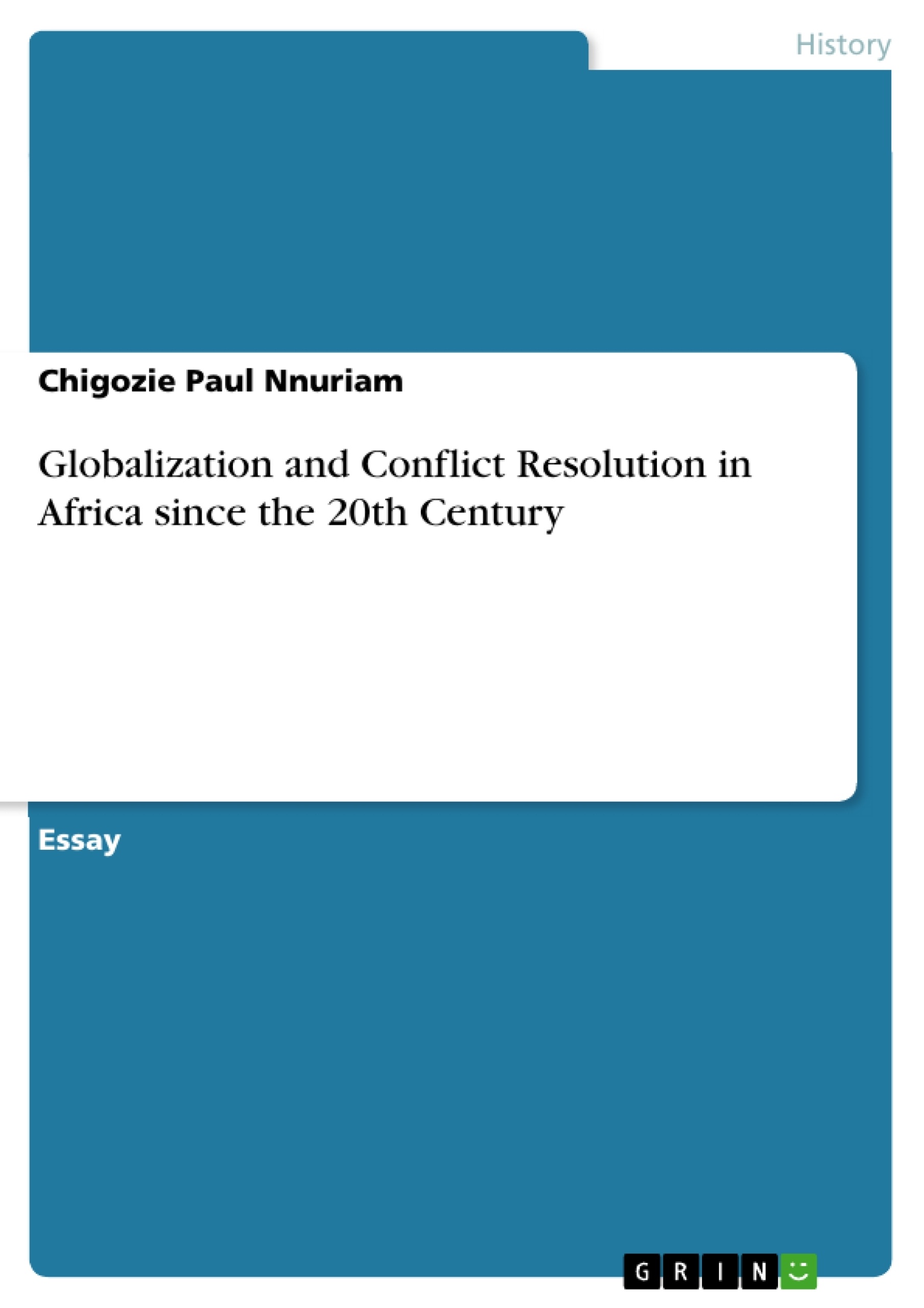Globalization is a process of global economic, cultural, and political integration. It is playing an important role and has brought new opportunities for African countries such as growth and improved productivity and living standards, technological transfer, conflict resolution etc. Globalization is a complex and multidimensional phenomenon of contemporary society.
Therefore, the areas of conflict and conflict resolution are also affected by this phenomenon. Conflicts are part of man’s existence; this is because disagreements among peoples are natural. The disagreement occurs in forms of revolution or war. The continent of Africa has been highly susceptible to intra and inter-state wars and conflicts. Africa’s track record of civil war, conflict and political instability has with a big measure of justification earned it the idea of a continent at war against itself.
Thousands of Africans have been killed in civil wars, con-flicts and uprisings in the course of the past decade. Meanwhile, Africa to date has remained a victim of all economic and political reform agenda of the European dominated world, but now consumed in what has come to be termed as globalization.
Inhaltsverzeichnis (Table of Contents)
- Introduction
- Conceptual Clarification
- Theoretical framework
- Liberalism
- Functionalism
- The Role of Globalization in Conflict Resolution in Africa since 20th century
Zielsetzung und Themenschwerpunkte (Objectives and Key Themes)
This work explores the multifaceted relationship between globalization and conflict resolution in Africa since the 20th century. It analyzes how globalization has influenced conflict dynamics in the continent, and explores the potential for globalization to promote peacebuilding and conflict resolution.
- The impact of globalization on conflicts in Africa
- The role of external actors in conflict resolution in Africa
- The potential for globalization to contribute to peacebuilding and conflict resolution in Africa
- The theoretical perspectives of liberalism and functionalism in understanding globalization and conflict
- The historical evolution of conflict resolution in Africa in the context of globalization
Zusammenfassung der Kapitel (Chapter Summaries)
- Introduction: This chapter provides an overview of globalization and its impact on African countries, highlighting the interconnectedness of global economic, cultural, and political processes. It emphasizes the complex nature of globalization and its influence on conflict dynamics in Africa.
- Conceptual Clarification: This chapter defines key concepts such as conflict, conflict resolution, and globalization, drawing on various perspectives and definitions from prominent scholars. It establishes a foundation for understanding the theoretical framework of the study.
- Theoretical framework: This chapter introduces the theoretical perspectives of liberalism and functionalism, which offer distinct explanations for the role of globalization in conflict resolution. It examines how these theories understand the interplay between global economic integration, political interdependence, and peacebuilding.
- The Role of Globalization in Conflict Resolution in Africa since 20th century: This chapter delves into the specific ways in which globalization has influenced conflict resolution in Africa since the 20th century. It examines the rise of international institutions, peacekeeping missions, and humanitarian interventions, as well as the role of external actors in conflict management and peacebuilding.
Schlüsselwörter (Keywords)
The primary keywords and focus topics include globalization, conflict resolution, Africa, external actors, peacebuilding, liberalism, functionalism, international institutions, peacekeeping, humanitarian intervention, and the role of non-governmental organizations (NGOs) in conflict resolution.
Frequently Asked Questions
How does globalization affect conflict resolution in Africa?
Globalization brings both opportunities (technological transfer, economic growth) and challenges (political instability), influencing how conflicts are managed and resolved.
Which theoretical frameworks are used to analyze this topic?
The work primarily uses Liberalism and Functionalism to understand global integration and its impact on peacebuilding.
What is the role of international institutions in African peacebuilding?
Globalization has led to an increase in international institutions and peacekeeping missions that intervene in intra-state and inter-state wars.
Is Africa considered a "continent at war against itself"?
The paper discusses this perception due to Africa's track record of civil wars and uprisings, while examining how globalization might change this narrative.
What role do NGOs play in African conflict resolution?
Non-governmental organizations are highlighted as key external actors that facilitate humanitarian interventions and conflict management.
- Quote paper
- Chigozie Paul Nnuriam (Author), 2018, Globalization and Conflict Resolution in Africa since the 20th Century, Munich, GRIN Verlag, https://www.grin.com/document/448291



